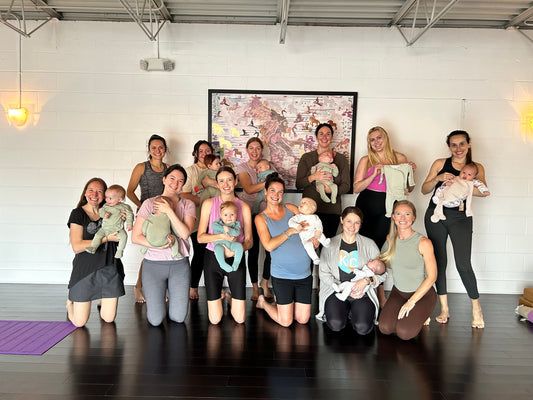Share
How to Boost Your Baby’s Immune System
silky raniTaking a newborn baby home from the hospital can be intimidating. Most parents have one primary goal: keep their baby healthy and safe. But how can parents protect their baby from all the unseen germs that are potentially dangerous?

The impending flu season, the pandemic, and a rise in Respiratory Syncytial Virus (RSV) in infants are all cause for additional caution. Infants who are under six months old are often hospitalized if they catch RSV, and if they catch the flu this often leads to pneumonia.(Cleveland Clinic, 2021) Here are a few ways that you can help protect your baby from illness and boost their immune system.
Keep Up with Vaccines
It’s important for you and your baby to keep up with all vaccines, such as the flu shot. If your baby is too young to get the flu shot, but you are breastfeeding, the antibodies (proteins made by your immune system that help fight infections) from your flu shot will be passed along to your baby. Amazing, right? You should also ask that friends and family who will be around your baby get the Tdap (whooping cough) shot. This illness is life threatening to babies under six months old. And good news, once you get the shot, you don’t have to get it again for ten years. (Unless you get pregnant.) Talk to your pediatrician about any questions or concerns you have about vaccinations.
Breastfeed If You Can
We’ve said it before and we’ll say it again, breast milk is INCREDIBLE. Colostrum, the “liquid gold” that is first produced, contains a high amount of antibodies that are specifically designed to protect a newborn’s fragile immune system. Then, when the breast milk comes in, the composition of the milk continuously changes to better meet the baby's needs. (McCarthy, 2021)The antibodies that a mother has built up in her own immune system will transfer to her baby through her breast milk. For example, if she had chickenpox as a child, her body has built up antibodies to fight the chicken pox, and those protections are passed to her baby. Likewise, if her baby gets sick, the baby’s saliva will alert the mother’s breast that specific antibodies are needed to fight the virus.

All of the other components of breast milk work hard to fight off infection, such as fats, proteins, sugars, and white blood cells. Even after a mother has stopped breastfeeding, the balanced immune system established while nursing will continue to help protect her baby, and the longer mom breastfeeds, the stronger her baby’s immune system will be. If you or your partner are unable to breastfeed or choose not to, talk to your pediatrician about other ways to boost your baby’s immune system.
According to Sanford Health, one of the many miraculous benefits of skin-to-skin contact is that it strengthens your baby's immune system.(Seitz, 2018) How does this work?
Practice Skin-to-Skin Contact
A mother’s antibodies are literally passed from her skin to her baby’s through skin-to-skin contact. The same thing happens when dad, a grandparent, or any caregiver practice skin-to-skin contact. This important practice also helps to hydrate baby’s skin, which creates a protective barrier against bacteria. In addition to these wonderful benefits, skin-to-skin contact also reduces stress, improves baby’s sleep and brain development, regulates their temperature, heartbeat, breathing, and oxygen levels, and provides a more loving parental attachment. All of these positive side effects work together to boost your baby’s immune system.
To make this practice more simple, Bonsie Skin to Skin Babywear created soft and purposeful baby clothing that allows for skin-to-skin contact anywhere, anytime.
All major health organizations, such as the World Health Organization, American Academy of Pediatrics, Academy of Breastfeeding Medicine, and the Neonatal Resuscitation Program, recommend skin-to-skin contact immediately after delivery as long as mom and baby are able. They also recommend continuing this habit as often as possible for several months after you take your baby home, and for at least six months if your baby is premature.
Skin-to-skin contact is such a simple and incredible way to boost your baby’s immune system. Let's Get skin-to-skin, baby!
Sources:
Cleveland Clinic. (2021, August 12). Is Your Newborn Baby's Immune System Strong Enough? Health Essentials . https://health.clevelandclinic.org/is-your-newborn-babys-immune-system-strong-enough/.
McCarthy, C. (2021, September 13). Breastfeeding Benefits Your Baby's Immune System. HealthyChildren.org. https://www.healthychildren.org/English/ages-stages/baby/breastfeeding/Pages/Breastfeeding-Benefits-Your-Babys-Immune-System.aspx.
Seitz, J. L. (2018, August 9). The Importance of Skin-to-Skin with Baby After Delivery. Sanford Health News. https://news.sanfordhealth.org/childrens/the-importance-of-skin-to-skin-after-delivery-you-should-know/.
Share
-
Category:
- All posts



